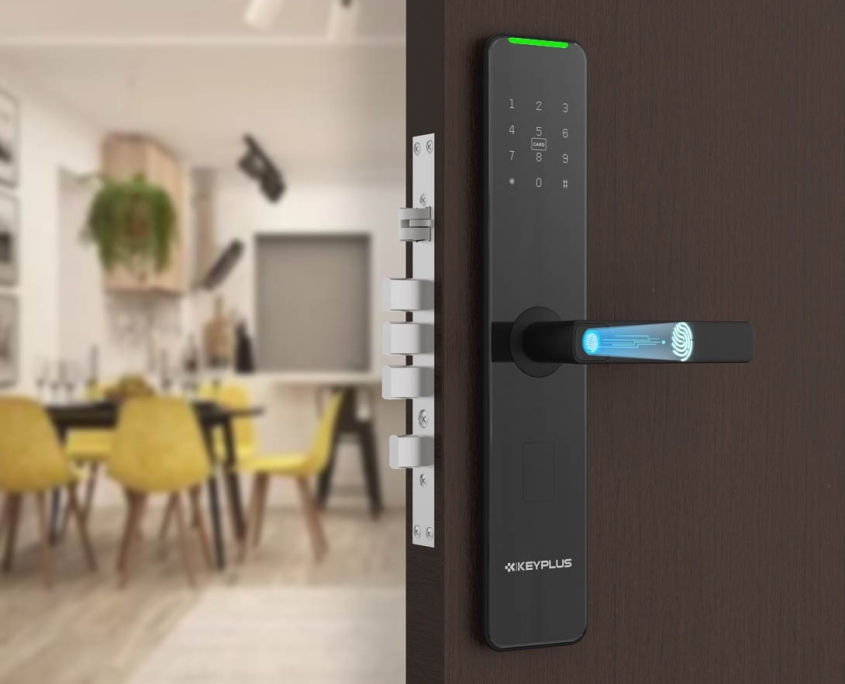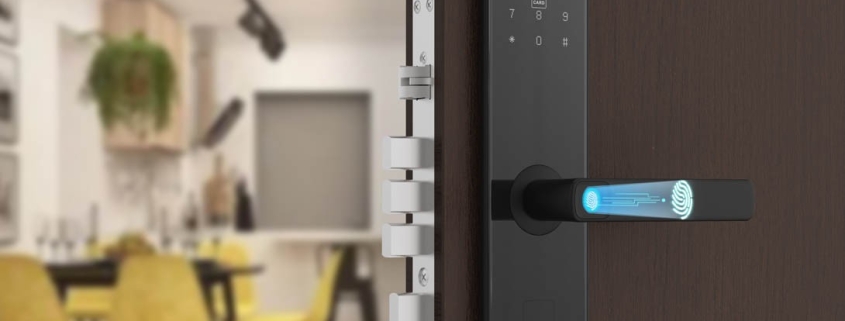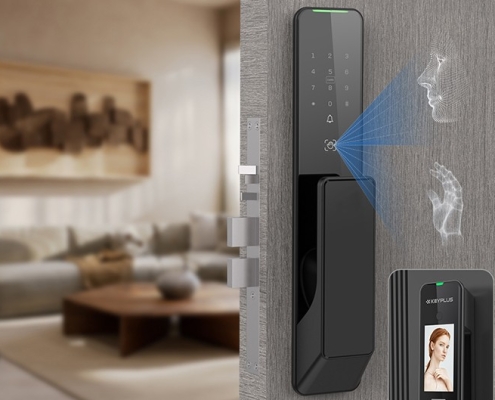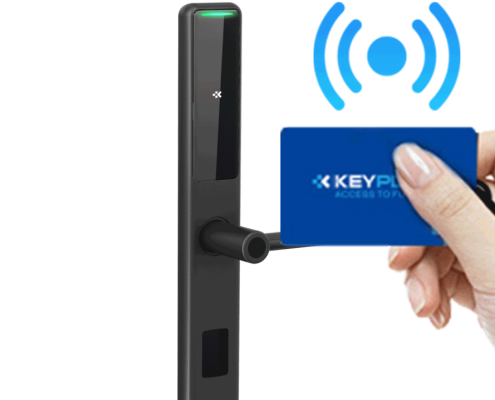How Safe Are Fingerprint Door Locks?
Fingerprint door locks sound like something out of a spy movie—just press your finger, and voilà, the door unlocks. No keys, no codes, no hassle. But how secure are they really?
With rising concerns about home security, many Americans are switching to biometric locks. But before you ditch your keys, you should know:
Can fingerprint locks be hacked?
Do they work in all weather conditions?
Are they better than traditional deadbolts or smart locks?
This guide breaks down how fingerprint locks work, their security risks, and whether they’re worth installing in your home.
1. How Do Fingerprint Door Locks Work?
Fingerprint scanners use biometric technology to identify unique patterns in your fingerprint. Here’s how they function:
Step 1: Enrollment
-
You register fingerprints (usually 5–20 per lock).
-
The lock stores an encrypted digital template (not your actual fingerprint).
Step 2: Authentication
-
When you press your finger, the scanner compares it to stored data.
-
If it matches, the lock releases the deadbolt.
Step 3: Backup Access
Most fingerprint locks include:
-
PIN code (backup if the scanner fails)
-
RFID card/key fob (for guests)
-
Physical key (emergency override)
2. Are Fingerprint Locks Secure?
Security Advantages
Nearly Impossible to Duplicate – Unlike keys or codes, fingerprints are unique to you.
No Shoulder Surfing Risk – Unlike PIN pads, no one can spy on your fingerprint.
Tamper Alarms – Many locks alert you if someone tries to force entry.
No Key Copies – Eliminates the risk of unauthorized duplicates.
Potential Security Risks
False Positives (Rare but Possible)
-
Some cheaper scanners can be fooled by high-quality silicone fingerprints.
-
Fix: Choose a lock with live detection (measures blood flow or heat).
Power & Battery Issues
-
If batteries die, you’ll need backup access (PIN, key, or RFID).
-
Fix: Pick a model with low-battery warnings and emergency power (9V battery terminal).
Weather Sensitivity
-
Wet, dirty, or dry/cracked fingers may not scan properly.
-
Fix: Models with multi-spectral scanners (like military tech) work better in bad conditions.

3. Fingerprint Lock vs. Traditional Deadbolt vs. Smart Lock
| Feature | Fingerprint Lock | Traditional Deadbolt | Smart Lock (Wi-Fi/Bluetooth) |
|---|---|---|---|
| Security | High (if advanced scanner) | Moderate (pickable) | High (with encryption) |
| Convenience | Fast, keyless | Needs physical key | Remote access via phone |
| Weather Resistance | Can fail if wet/dirty | Always works | Usually weatherproof |
| Battery Life | 6–12 months | N/A | 3–6 months (Wi-Fi drains faster) |
Best for fingerprint locks:
-
High-security needs (home offices, gun safes)
-
Families with kids (no lost keys)
-
Rentals/Airbnbs (no key exchanges)
4. Can Fingerprint Locks Be Hacked?
Known Vulnerabilities
-
Fake Fingerprints
-
Some low-end locks can be tricked with gelatin or 3D-printed replicas.
-
Solution: Buy a capacitive scanner (like iPhones use) instead of optical.
-
-
Bluetooth/Wi-Fi Hacking (If Applicable)
-
Some fingerprint locks also have app access, which can be exploited.
-
Solution: Disable remote features if not needed.
-
-
Physical Tampering
-
If installed poorly, thieves can pry off the lock.
-
Solution: Choose ANSI Grade 1 locks (commercial-grade durability).
-
5. Are Fingerprint Locks Worth It?
YES, If You Want:
-
Maximum security without carrying keys.
-
Fast access (great for families with kids).
-
No risk of lost/stolen keys.
NO, If You:
-
Live in extreme weather (very cold/humid climates).
-
Prefer remote access (get a Wi-Fi smart lock instead).
-
Are on a tight budget (good fingerprint locks start at $200+).
6. Final Verdict
Fingerprint locks are one of the most secure options for American homeowners—if you buy a high-quality model. Avoid cheap knockoffs from Amazon and go with a brand like Keyplus for more reliable performance.
Have you tried a fingerprint lock? Share your experience below!








